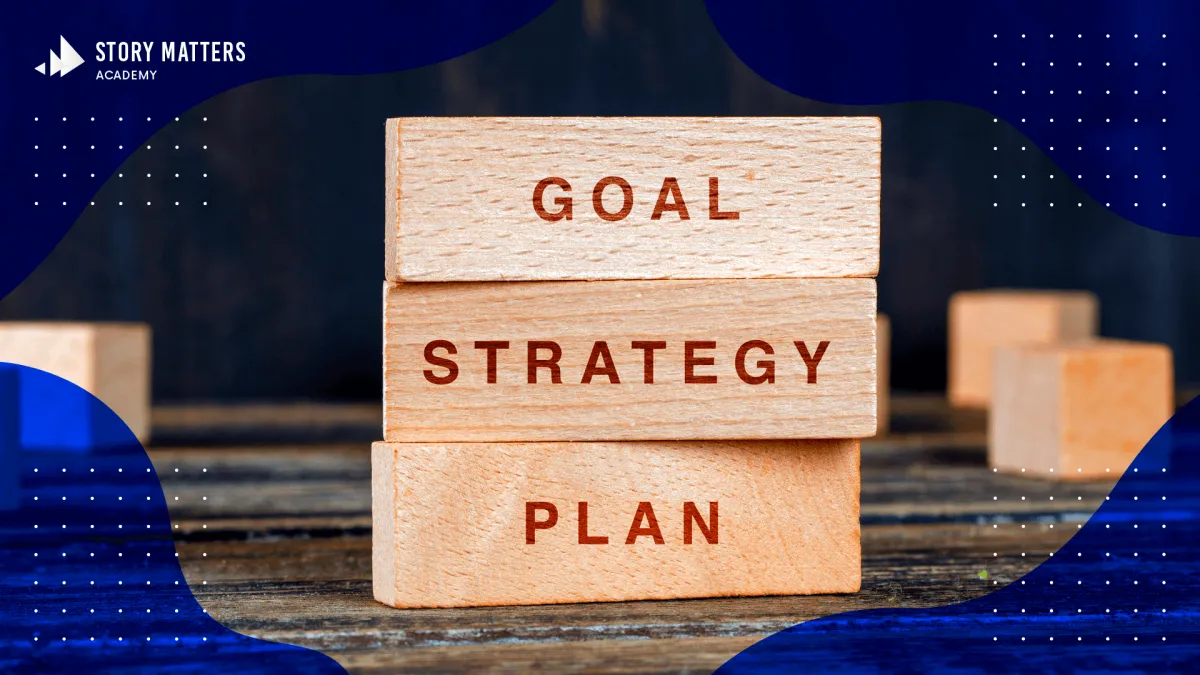James Cook Media Blog

How To Build A Digital Marketing Strategy
There are more than 1,400 tools in digital marketing. And each of them can be used in different ways. To understand which tools are best for your tasks, you need a digital marketing strategy.

Why Digital Marketing Strategy is Important
The digital marketing strategy allows you to answer the questions of why, to whom, when, what, where and how to advertise. Based on objective data - about your business, market, competitors and target audience.
A digital marketing strategy is a long-term plan that is needed to grow a business. A well-formulated work plan motivates employees and reduces the financial cost of an advertising campaign.
Benefits of creating a digital marketing strategy:
Helps to get more information
Provides real data
Structures your actions
Helps increase ROI
Improves relationship with the audience
What is Digital Marketing Strategy
A digital marketing strategy is a consistent plan to promote a product, service, or brand using digital technologies and tools. The digital strategy allows you to build an optimal action plan to achieve the company's goals through digital marketing.
The main goal of forming a digital marketing strategy is to obtain a clear and reasonable algorithm of actions to achieve the set business goals.
A digital marketing strategy combines several digital marketing tools into a single plan. These may include:
Content Marketing
Email Marketing
Search Engine Marketing (SEM)
Search Engine Optimization (SEO)
Contextual Advertising
Social Media Marketing
Affiliate Marketing
What Should a Digital Marketing Strategy Include
There is no one-size-fits-all strategy for every business. What exactly your strategy should consist of depends on many factors. But the strategy must include the following points:
Formed goals
Description of the target audience
List of channels for promotion
Types of advertising campaigns and offers
Media plan
Analytics and optimization

Stages of Digital Marketing Strategy
Creating a digital marketing strategy consists of many stages. Next, we will consider each of them in detail.
1. Identify the Goals
The development of a strategy should begin with determining the goals of your message for an advertising campaign. As a rule, goals are formulated in specific figures. For example, increase user conversion by 5%.
2. Analyze Your Product or Service
The next step is to analyze the product or service based on the Jobs To Be Done approach. It is 4 questions that help determine the motives of what motivates customers to buy your product or service:
What job will the user hire the product for?
What user problem will your product solve?
What result does the user want to achieve?
How does the user achieve this now?
3. Determine Target Audience
The next step is to determine the target audience based on relevant criteria for your product or service. This is a very important stage that helps you understand which tools for your strategy will be more effective.
4. Analyze Competitors
After determining the target audience you should make an in-depth analysis of direct, indirect, as well as secondary competitors in the market.
Direct competition - products do the same work in the same way.
Secondary competition - products do the same work in different ways.
Indirect competition - products do different work with conflicting results and compete for the same user's time and money.
5. SWOT Analysis
The next step is to determine the competitive advantages and disadvantages of your product. To do this, you need to conduct a SWOT analysis.
The abbreviation of SWOT means:
Strength
Weakness
Opportunities
Threats

It is a method for evaluating internal and external factors affecting the development of a company. In this way, we analyze the strengths and weaknesses of the business, as well as identify opportunities and threats from the environment. “S” and “W” refer to the state of the company, and “O” and “T” to the external environment of the organization.
6. Choose Communication Channels
Based on the collected data, choose several channels of communication with your target audience.
7. Define Performance Metrics
Determine the metrics for evaluating the effectiveness of all your chosen communication channels. Based on the goals of the advertising campaign.
For example, your goal is to attract as many as possible interested users to the site. To do this, we evaluate how people react to an advertisement based on two indicators CTR and CPC.
CTR - click-through rate of ads, shows how many people saw the ad and clicked on the link. Helps to understand how attractive the ad is to users. A low CTR indicates that the title does not fall into the interests and desires of users, the offer is vaguely formulated, or the image in the ad does not attract attention.
CPC - cost per click or our cost to attract one user who clicked on an ad to the site. The cost of a click depends on the quality of the ad, the number of competitors in the business niche, and also on the number and specifics of the audience. The narrower the target audience of the business and the more competitors, the higher the cost of the transition will be.
8. Set a Budget
When the choice is made, it is important to calculate the budget and duration of your advertising campaigns in relation to your goals.
9. Track Efficiency
After launching advertising campaigns, you should constantly monitor their effectiveness. The effectiveness of each tool and action should be evaluated.
10. Make Adjustments
The last, but no less important step in building a strategy is its adjustment based on the data received. The most effective method to determine whether the chosen strategy is suitable for your business is to test all its hypotheses in practice.
After you receive the first results of advertising campaigns, you can evaluate their effectiveness. This will help determine which tools work better than others, and which are not worth spending resources on.

When Is It Better to Plan a Digital Marketing Strategy
A digital marketing strategy is important when you are just about to start your business.
A digital marketing strategy is needed when certain promotion tools have already been tested and there is a certain result.
A digital marketing strategy is obligatory when there are already certain positive results.
A digital marketing strategy is vital when there are already basic points of contact with the audience: website, page on social media, page in the local issue, etc. There is traffic, requests and sales.
And it’s impossible to move forward without a digital marketing strategy when you are not satisfied with the volume of sales, goals are not met, and you don't know how to change the situation.
Conclusion
Therefore, the question of whether it is necessary to create a digital marketing strategy for your business should not be asked at all. The sooner you develop it, the better it will work. Since the stage of its adjustment, after the data is received, is as important as the strategy itself.
Build a Marketing Strategy for your Story-Based Funnel
2 х 180-minute amazing video training, StoryTelling Welcome sequence, 1-on-1 Strategy Call, 8 Funnel Blueprints, Resource guide & much more…
$563 in Value, JUST $27 USD!

© 2022 StoryMatters Academy

Our Services
We help Authors, Coaches, Experts, and Business Owners tell Powerful Stories that change lives.
Join the StoryTelling in the Digital Age MasterClass and Schedule your 1 x 1-on-1 FREE Marketing Discovery Call to help you create your story that attracts your audience to invest in your product or service.

